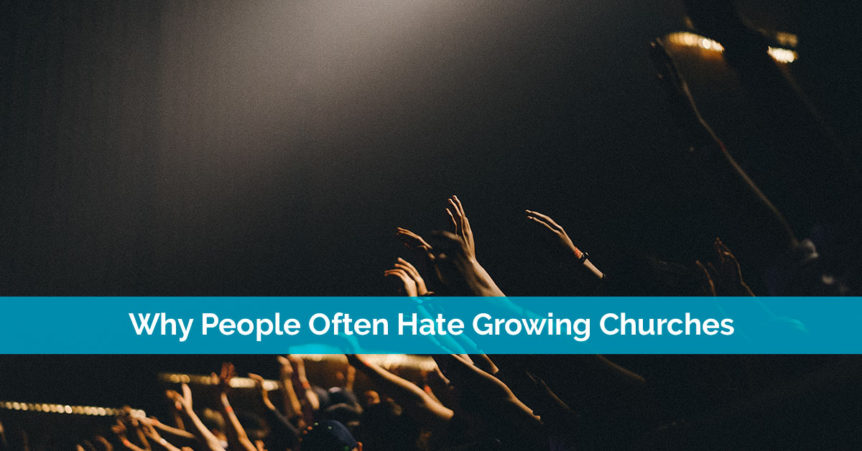Churches usually have two main goals – sharing faith with the community and continuing to grow the church.
The two go hand in hand. As a church grows, you reach more people. However, you might have noticed that some of your members hate growing churches.
They’re usually thrilled to see more people coming together, but it’s all the changes that go along with growth that could very well cause your original members distress.
Disagreements Over Changes
Change isn’t easy for anyone. In fact, people are wired to automatically reject a change that’s opposite of what they’re used to. Think of it in terms of trying to exercise more. You want to make this positive change in your life, but your brain tells you that it’s used to what you’re doing now. It takes noticeable effort to push yourself to make a change to exercise more often.
The same holds true for churches. Your members aren’t always going to agree on what changes need to be made in growing churches. A common point of contention is music. That’s often one of the first major changes and while church growth through music is possible, it has to be done carefully.
It’s important to discuss changes with members and staff to figure out how everyone feels. After all, if you’re gaining new members, but losing all of your old members, it may not be worth it.
Too Many Changes At Once
Another reason people hate growing churches is the domino effect. Your church makes one change, such as starting to use Facebook. Suddenly, it feels like a row of dominoes toppling over. Facebook leads to a website, which encourages a blog and podcast. Those changes spark the need for a change in music, leadership, programs and even the building itself.
Remember, people are naturally resistant to change. Just because one change went well doesn’t mean your church is quite ready to handle a dozen more. Take it slowly so you experience growth without driving people away.
Community Grows Too Quickly
Everyone knows growth means welcoming more people into the community. In theory, that’s a great idea. In practice, it’s more complicated. First, a smaller church has the benefit of everyone knowing everyone else. This creates a closer bond and no one likes the thought of others coming in and ruining that bond.
Gradual growth allows everyone time to acclimate. When you suddenly add 100 new members in a month, it seems like everything is changing too fast. All the new members have their own ideas of what their new church should be, which just results in more changes. This may make your existing members feel less valued and as if they have zero control.
Increase In Responsibilities
Church leaders love to see a growing church. They also hate it. With growth comes a massive increase in responsibilities. It also means the need for more volunteer staff. For instance, if your growth strategy involves having a web presence, you’ll need volunteers to run the blog, take care of website maintenance, ensure videos are uploaded, respond to social media comments and more.
This is a lot to manage, especially if a church starts to grow rapidly. The great news is if everyone works together, the chaos evens out as everyone settles into their new responsibilities and you get more volunteers.
Learning New Technology
While some of your members probably can’t bear the thought of leaving home without their smartphone or tablet, other members in your community may still have trouble figuring out their flip phone. Adding new technology to your growing church may cause older members to hate the growth. Instead of feeling like they’re at church, it seems more like the local mall.
Plus, if you’re asking them to use certain apps or check out your website, it’s overwhelming to those who have no clue how to do so. Learning new technology isn’t always easy.
Luckily, this obstacle is pretty easy to overcome. First, don’t require anyone to use any new tech you’re implementing. Second, have volunteers available to give lessons to anyone who needs them. Church is a safe environment where people will feel more comfortable asking for help.
Feeling Like It’s Not The Same
The number one reason people hate a growing church is that they don’t think the church feels the same anymore. Sadly, some members feel entitled to a church being a certain way. If anything changes, they’re offended.
For others, they just love being in a smaller church. They like a small community and just don’t appreciate having to engage with a growing number of people. For these situations, there’s not much your church can do other than be available to listen to their concerns and help them adapt if possible.
Now that you know what some people hate growing churches, you know how to avoid many of these common problems. When you’re ready, kick-start your church’s growth by creating an online presence today.





Comments 3
Amen Amen Amen Amen Amen
The challenge to personal preferences, which are often framed as “Thus saith the Lord.”
Author
Very true. We need to preach on the 3rd commandment!